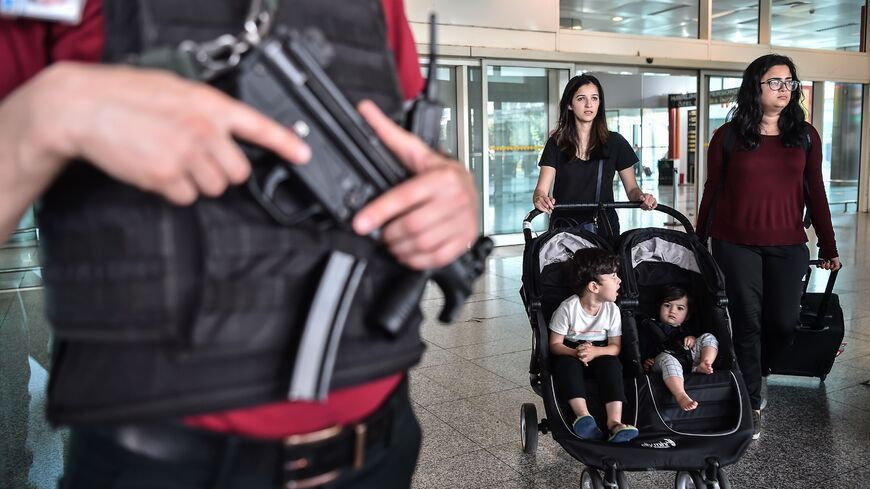
The US Treasury Department designated four individuals and two entities accused of enabling the terrorist group’s recruitment and financial transfers.
The US Treasury Department on Thursday designated what it described as a Turkey-based financial network of the Islamic State (IS) that moved funds to and from Syria and Iraq.
In a joint action with Turkey, the Treasury’s Office of Foreign Assets Control (OFAC) imposed sanctions on four individuals and two entities accused of enabling the terrorist group’s recruitment and financial transfers. According to OFAC, the network “played a key role in money management, transfer, and distribution” for IS.
Also on Thursday, Turkey announced an asset freeze on members of the network. In a press release, the Turkish Ministry of Foreign Affairs said Ankara will “continue to take effective steps on countering terrorism financing and cooperate with its international partners on the issue.”
The US-designated network includes its founder, Brukan al-Khatuni, an Iraqi national living illegally in Turkey. His two sons Muhammad Abd Al Hamid and Umar Abd Al Hamid and an IS financial facilitator, Lu’ay Jasim Hammadi al-Juburi, were also designated. All are accused of facilitating money transfers to IS through their Turkey-based financial entities, Wadi Alrrafidayn for Foodstuffs and Sham Express. Both entities were hit with sanctions.
According to the Treasury, in 2021 Al-Khatuni sent money to Yasir Ali Ahmad Nuwayran al-Farraji, an IS cell member arrested by the Kurdistan Regional Government for planning attacks in the Iraqi Kurdish capital of Erbil.
“Today’s action reaffirms Treasury’s commitment to degrade [IS]’s ability to operate globally,” Brian Nelson, the Treasury’s undersecretary for terrorism and financial intelligence, said in a statement. “These designations and accompanying asset freezes are a result of close coordination and collaboration with our Turkish partners to target [IS] activity in the region.”
The designations announced Thursday are the latest to target the terrorist group’s finances. In November, the Treasury imposed sanctions on four individuals and eight companies operating as part of an IS cell in South Africa.
In May, the United States added five IS financiers in Turkey, Syria and Indonesia to its sanctions list for helping recruit new members and transferring funds to help fighters obtain weapons and smuggle children out of Syrian detention camps.
